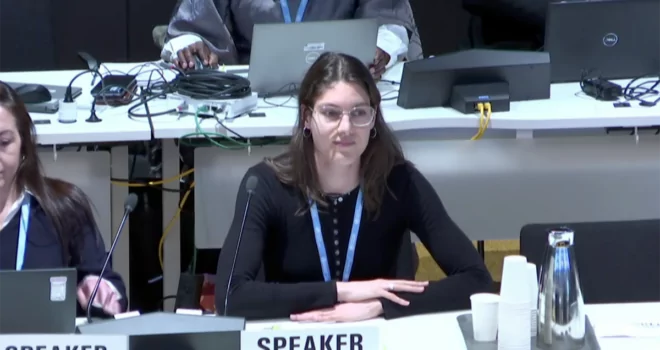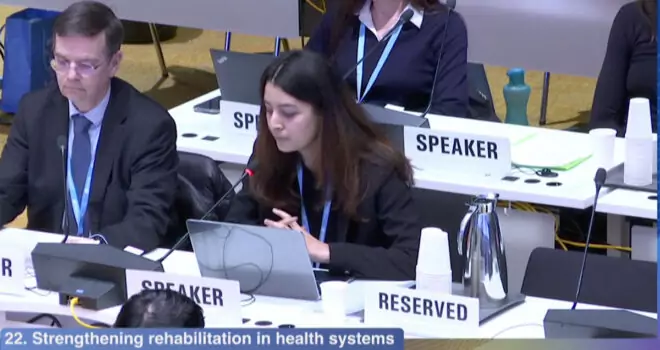This statement was submitted under Agenda Item 12 – Progress Reports – at the Seventy-Fifth Session of the WHO Regional Committee for Europe
Honourable Chair,
Distinguished Delegates,
The World Heart Federation and the European Heart Network commend WHO and Member States for the progress made in implementing the European Framework for Action on Alcohol 2022-2025. We also applaud WHO Europe for its leadership in advancing efforts on alcohol labelling and for its clear communication around “no safe level” of alcohol consumption for noncommunicable diseases. We further congratulate the Regional Director for leading by example in establishing a no-alcohol policy for WHO-supported meetings in the European region.
We note with concern that the European Region continues to record the highest levels of alcohol consumption globally. Alcohol use is responsible for approximately 800’000 deaths worldwide as well as 290’000 deaths regionally each year – primarily NCDs – with an estimated economic burden of around 125 billion euros annually.
Cardiovascular disease remains a leading cause of death across Europe, accounting for approximately 3.9 million deaths annually. Alcohol is a major risk factor for many cardiovascular conditions, including heart failure, cardiomyopathy, hypertension, atrial fibrillation, and stroke, with over 50’000 cardiovascular deaths attributed to alcohol consumption every year.
Harmful consumption patterns, especially heavy episodic drinking, are widely recognized as key contributors to alcohol-related harm. Nonetheless, The World Heart Federation reiterates that alcohol offers no health benefits or protective effects, even at low or moderate levels of consumption, including for heart health.
Alcohol exacerbates health inequalities, as disadvantaged and vulnerable populations experience higher rates of alcohol-related death and hospitalization. Individuals with lower socioeconomic status suffer disproportionately greater harm from the same levels and patterns of drinking compared to more advantaged groups.
We urge Member States to strengthen alcohol control policies to reduce the burden of NCDs, including cardiovascular disease, especially:
- Prioritize alcohol policies within NCD prevention agendas;
- Adopt fiscal policies that raise alcohol taxes to at least 50% – and ideally 75% – of retail price, in line with WHO recommendations for tobacco taxation, alongside minimum unit pricing;
- Introduce mandatory health warnings on all alcohol beverages, including beer and wine;
- Implement comprehensive bans on alcohol advertising, promotion, and sponsorship;
- Accelerate the implementation of evidence-based, cost-effective measures, such as the WHO SAFER, in line with the WHO Global Action Plan on Alcohol 2022-2030; and
- Address the social, economic, and commercial determinants of health to ensure no one is left behind and protect public health policies from industry interference.
In the European Region, the WHO Quick Buys, built on the WHO Best-Buys, offer a suite of proven, cost-effective interventions to reduce tobacco use, alcohol consumption, unhealthy diets, and physical inactivity while addressing cardiovascular disease. These measures can deliver measurable public health benefits within five years.
We also call on Member States to consider extending the European Framework for Action on Alcohol to 2030 to align with the WHO Global Action Plan on Alcohol.
To support global efforts, the EHN Position Paper on the Impact of Alcohol Consumption on Cardiovascular Disease and WHF Policy Brief on Alcohol may serve as practical tools to guide implementation, in line with the WHO Global Action Plan on Alcohol 2022-2030.
Thank you.



